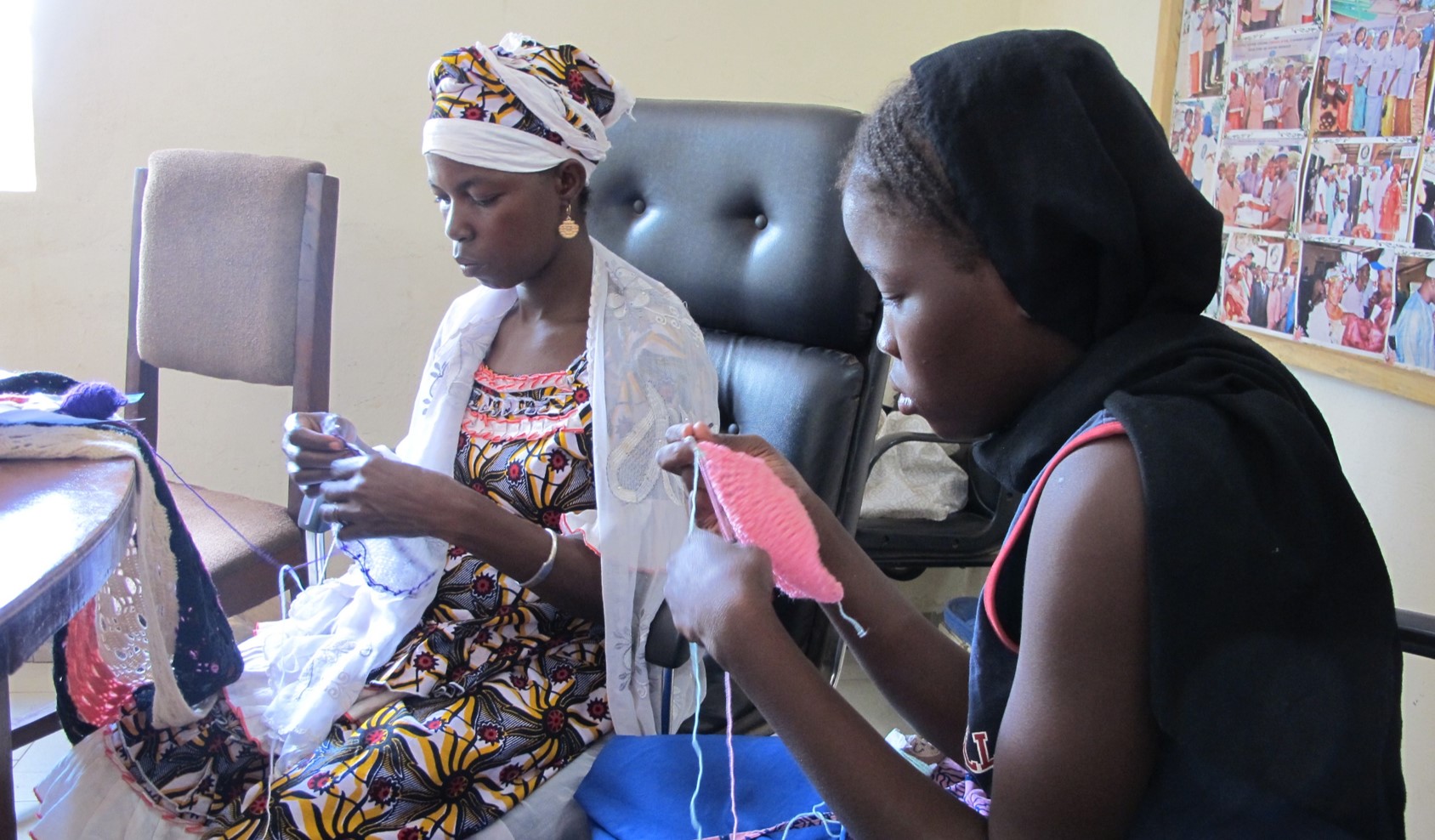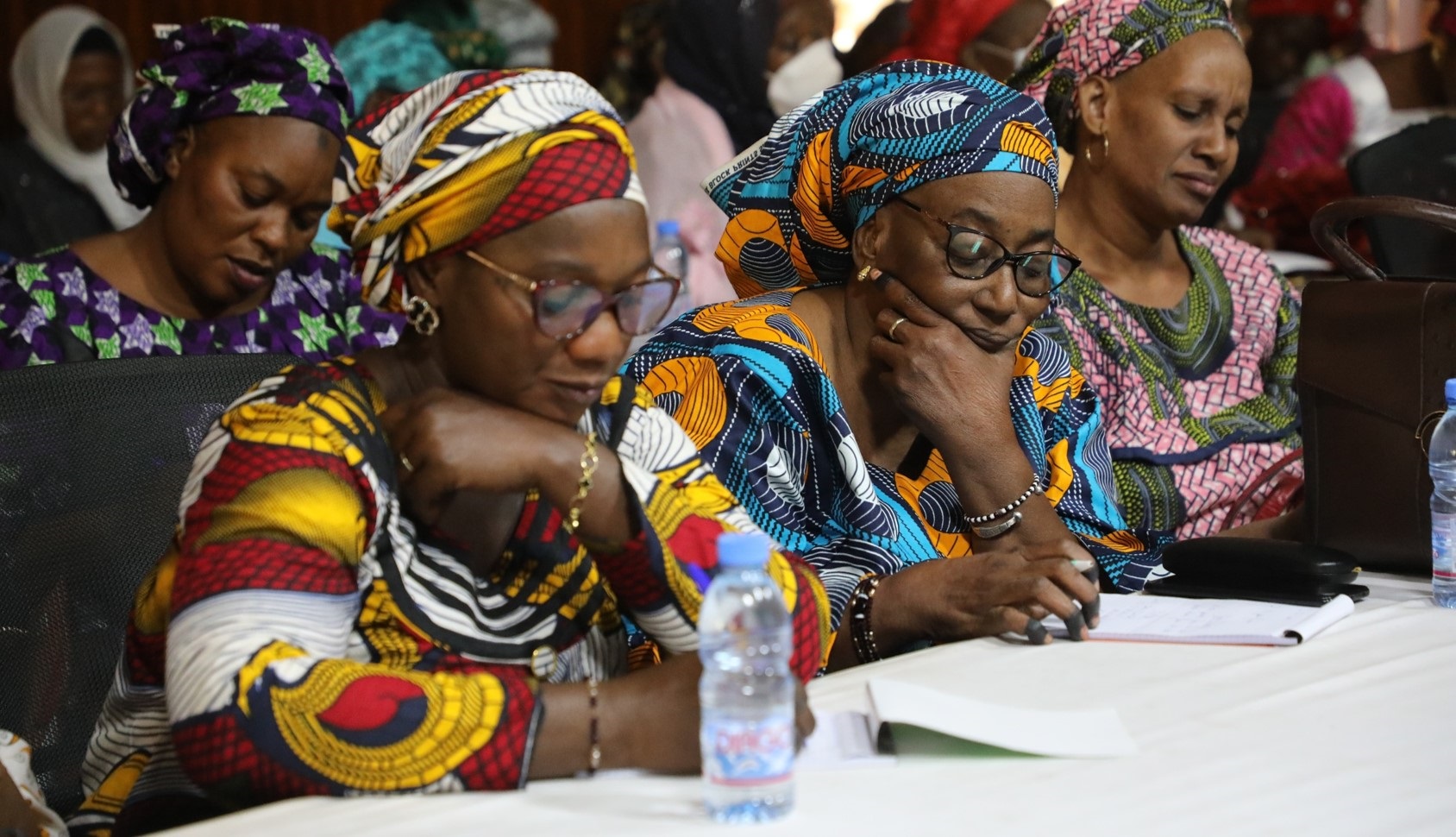
About the Together Women Rise Grants Program
The Together Women Rise Grants Program has two key components that support our overall mission to achieve global gender equality. Featured Grants are largely focused on delivering direct services by funding grassroots organizations that empower and support women and girls in low-income and marginalized communities in the Global South. Our Transformation Partnerships are designed to invest in areas where we can make the biggest impact on achieving global gender equality by addressing the root causes of gender inequality.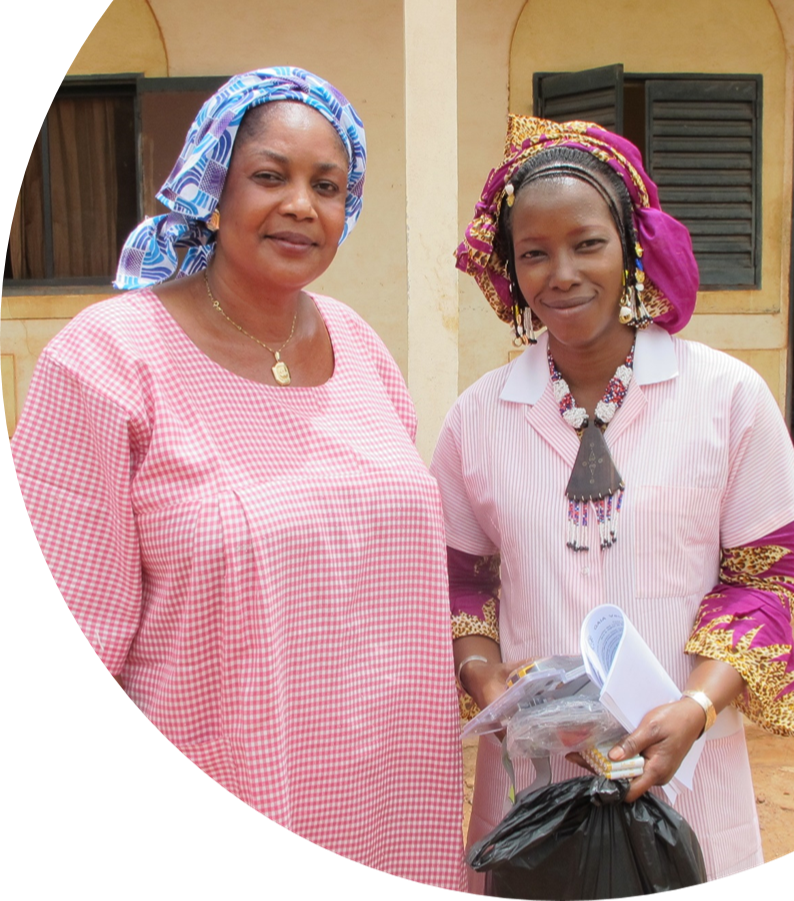
Featured Grants may include:
- Project/Program grantsfund a specific project or program with particular deliverables for a specific timeframe; or
- General Operations grantsto cover an organization’s day-to-day, ongoing expenses, such as salaries, utilities, office supplies, and more; or
- Capacity-building grants to strengthen an organization’s systems and thereby increase its effectiveness.
Through our Featured Grants Program, we highlight a different organization/project each month, providing a variety of learning materials on the issue and how the grant will be used. The following is information on the grant we are featuring for December 2024.
The Global Issue
Preventing Cervical Cancer
| “Cervical cancer is highly preventable and treatable. It could be the first cancer EVER to be eliminated.”
-Tedros Adhanom Ghebreyesus, Director General of the World Health Organization |
Cervical cancer remains a killer, especially in West Africa.
- Cervical cancer is the fourth most common cancer in women worldwide and the second most common cause of cancer in women in West Africa.
- Nearly all cervical cancer is caused by persistent infection with the human papillomavirus (HPV).
- Ninety percent of deaths from cervical cancer caused by HPV occur in low and middle-income countries, where knowledge about cervical cancer, HPV, and access to preventative measures is low or nonexistent.
- The risk of cervical cancer is directly correlated to education.
- Cervical cancer prevention in West Africa is often limited to visual inspection of the cervix and surgical intervention.
- Prophylactic vaccination against HPV and screening and treatment of pre-cancer lesions are effective strategies to prevent cervical cancer and are very cost-effective. Vaccines against HPV are considered safe and highly effective.
- Cervical cancer can be cured if diagnosed at an early stage and treated promptly. When cervical cancer is diagnosed at an early stage, the 5-year relative survival rate is 91%.
HPV is a common sexually transmitted infection which can affect the skin, genital area, and throat. Almost all sexually active people will be infected at some point in their lives, usually without symptoms. In most cases, the immune system clears HPV from the body. Persistent infection with high-risk HPV can cause abnormal cells to develop, which go on to become cancer.
| Cervical cancer rates in the Unites States declined 11% each year from 2012 to 2019 for women ages 20-24, likely reflecting the first signs of cancer prevention from the HPV vaccine. |
About Our Grantee
Together Women Rise is funding a $48,522 Featured Grant to GAIA Vaccine Foundation.* This is a project grant. Rise previously funded GAIA Vaccine Foundation in 2020.
GAIA Vaccine Foundation
GAIA’s mission is to reduce the incidence of infectious diseases that disproportionately affect the underserved and to promote the development of globally relevant, globally accessible vaccines that can be distributed on a not-for-profit basis in low-income countries.
The organization was founded in 2001 by HIV expert Dr. Anne De Groot and members of the board. In 2023, Dr. De Groot received the American Association of Pharmaceutical Scientists’ Pharmaceutical Global Health Award for her work creating vaccines and making them available to underserved populations around the world.
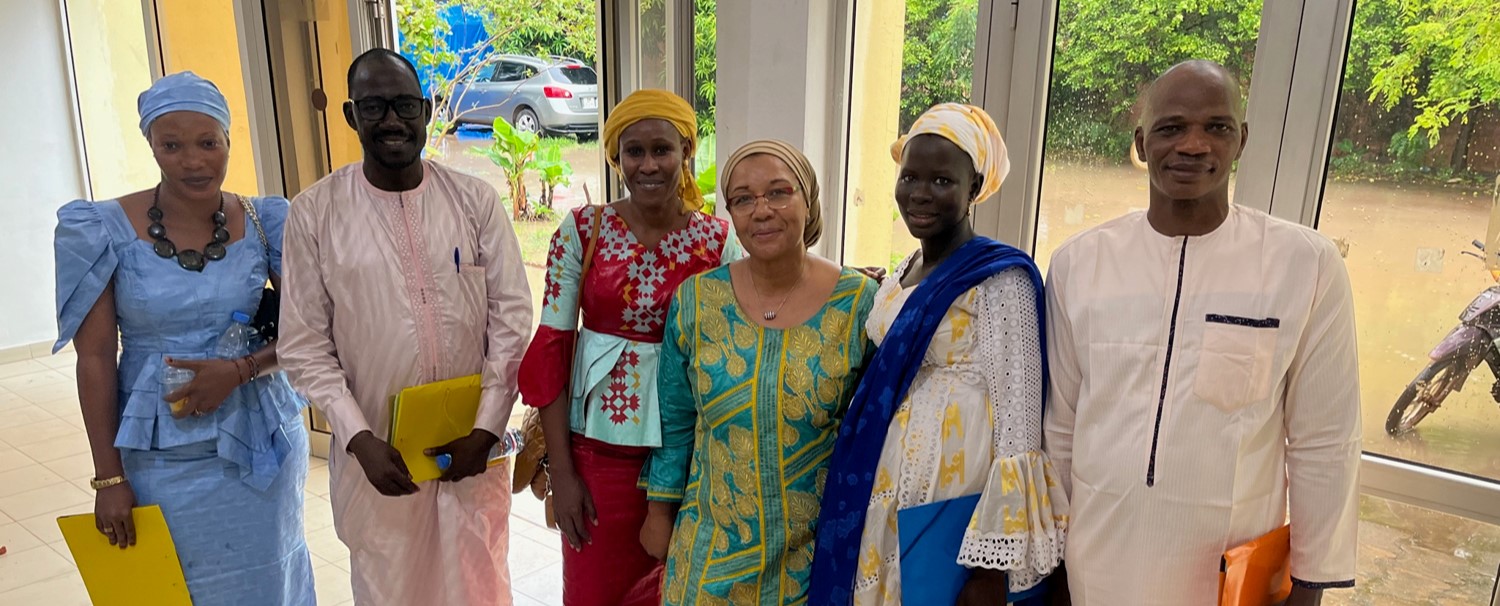
GAIA partners with community clinics in Sikoro, Bamako, Mali and focuses on four areas: education, prevention, access to care, and vaccination. Its programs include:
- Mother-to-Child HIV Transmission Prevention (MTCTP) – offers free HIV and maternity care to women to ensure that HIV is not transmitted from mothers to newborns.
- Nutrition & Support Program – created by women who participated in the MTCTP program to ensure that all HIV+ women have peer support and proper nutrition.
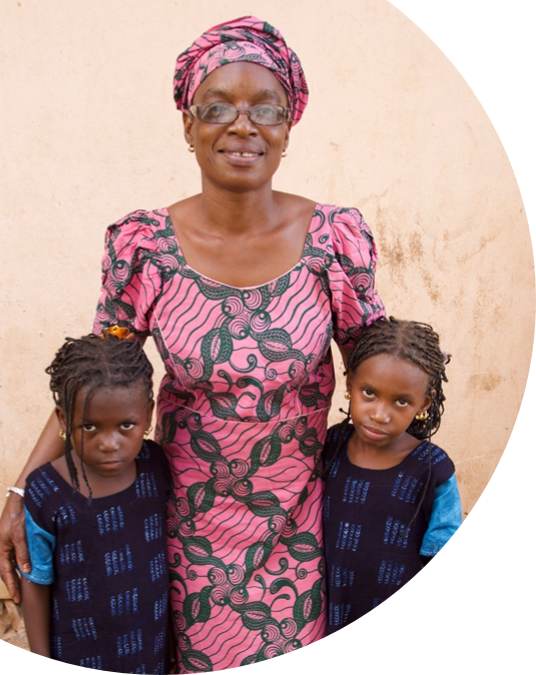
- Teen Peer Education – offers sex education to girls in the community and encourages them to stay in school. These programs take place weekly to ensure that women and girls in Sikoro have access not only to quality care, but also the necessary education and support to make these services sustainable.
- HIV Testing & Community Care – offers anonymous, free HIV testing and is a model for community-level HIV care.
- HPV and Cervical Cancer – provides cervical cancer screenings and vaccinates girls against HPV.
These programs ensure that women and girls in Sikoro have access not only to quality care, but also the necessary education and support to make these services sustainable.
Together Women Rise’s previous grant in 2020 funded the development of a COVID-19 storytelling cloth and training of female community educators to lead information sessions on how to prevent the spread of COVID-19 through mask wearing, social distancing, and hand washing.
*Note that GAIA Vaccine Foundation is a different organization than GAIA (Global Aids Interfaith Alliance), a 2018 Together Women Rise Featured Grantee.
LEARN MORE ABOUT GAIA VACCINE FOUNDATION
Life Challenges of the Women & Girls Served
- Cervical cancer is a major killer of women in Mali. Most women in Mali are unaware of the link between HPV and cervical cancer. Screening for cervical cancer does not typically occur until women are symptomatic.
- The traditional family structure may include one man and several wives, which increases the risk of HPV infection and transmission.
- Women in Mali have extremely limited education, with 60% having no formal schooling and an additional 28% having only a primary school education. Many health campaigns come with posters and pamphlets, but those resources are not helpful to women who cannot read them.
- Mali is a traditionally patriarchal and hierarchical society, so women typically lack decision-making power even in their own homes.
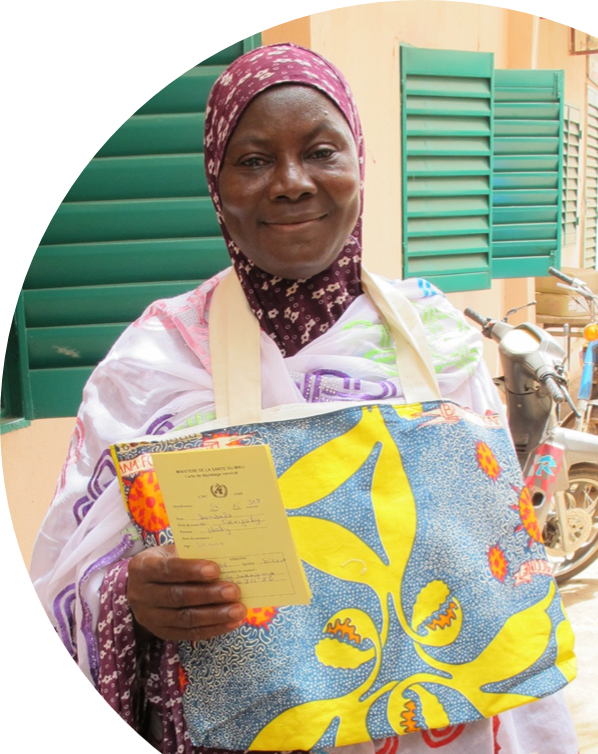
- Mali is a difficult place to be a woman and a mother. One in eight children die before their fifth birthday and one in 26 women die in childbirth.
- Mali is ranked 179 out of 188 countries for gender equality, according to the United Nations Development Program’s Gender Development Index, a measure which considers the Human Development Index from a women’s empowerment perspective.
- Mali is ranked the 4th worst place in the world to be a mother or a child under 5, according to Save the Children’s annual State of the World’s Mothers Report that documents the condition of maternal health and wellbeing.
- Access to healthcare is extremely limited, primarily due to the decentralized Malian health system that leaves each community clinic faced with the challenge of raising revenue through a fee-for-service system. This places the burden of payment on poor families. These communities lack the training, financial resources, and education to manage clinics effectively, so both people and clinics struggle.
- Women have little power to pay for healthcare or anything else because of their traditional exclusion from financial management in their families. As a result, clinic utilization is low, leaving clinics under-resourced, under-staffed, and thus unable to provide high-quality health care.
LEARN MORE ABOUT MALI
How the Grant Will be Used
Together Women Rise’s $48,522 Featured Grant to GAIA Vaccine Foundation will assist in the introduction of the HPV vaccine to Mali. GAIA will host a year-long educational community outreach campaign on HPV, the HPV vaccine, and cervical cancer to improve general knowledge about HPV/cervical cancer so that women and girls are able to make informed decisions that are in the best interests of their health and wellbeing.
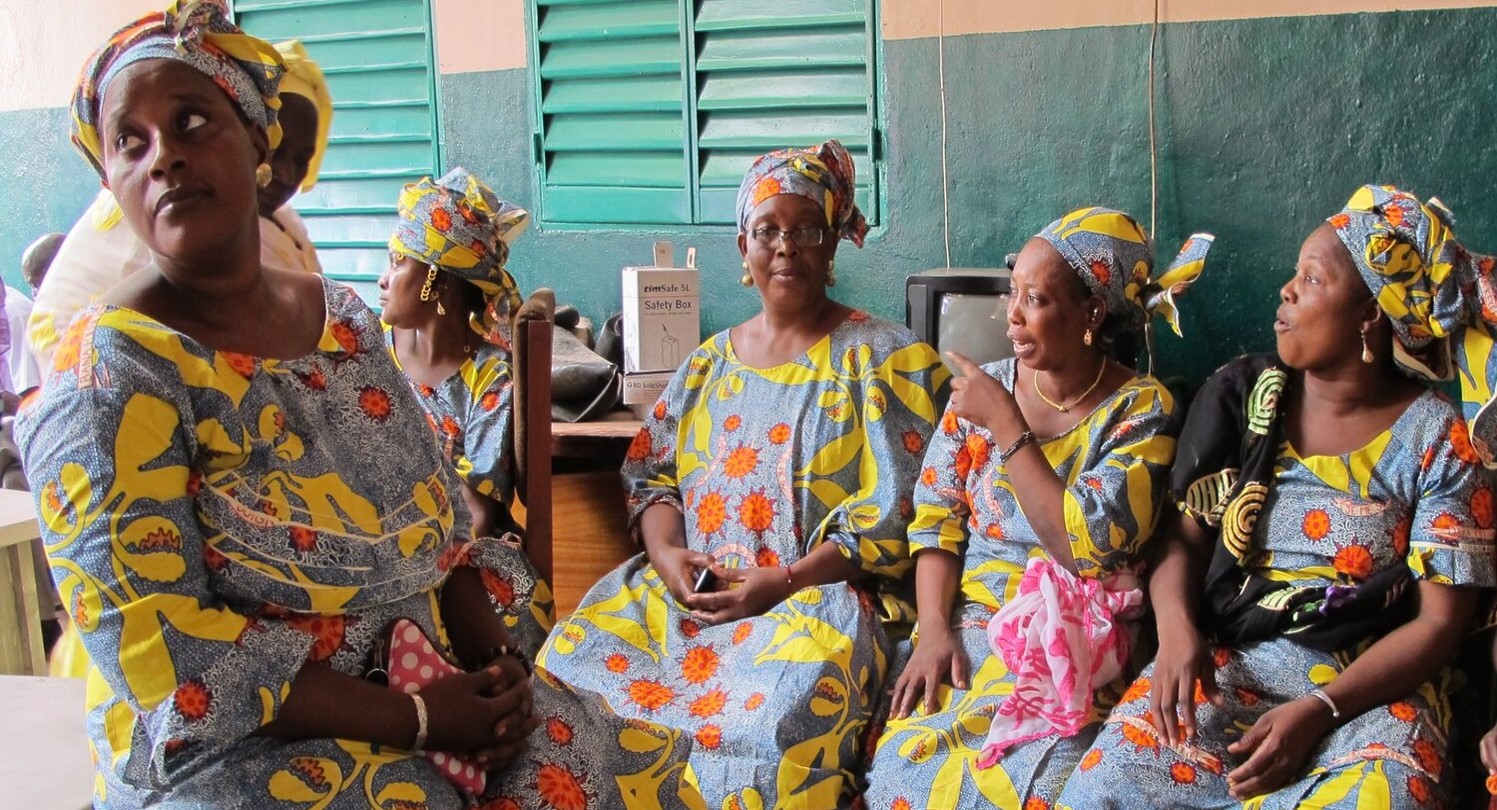
Mali’s National Center for Immunization, UNICEF and GAVI (Global Alliance for Vaccines and Immunization) are working to ensure that the HPV vaccine will soon be available in Mali, marking a major breakthrough in preventing HPV and cervical cancer. GAIA joined forces with the Malian government to help them meet their HPV vaccination pilot goal for GAVI in 2018, however, as was true with the COVID-19 vaccine, many people refuse vaccines due to a lack of information or the widespread circulation of misinformation
In preparation for the arrival of the HPV vaccine, GAIA’s educational outreach will encourage people to get their daughters vaccinated. The campaign will be centered around a “storytelling cloth” designed for HPV outreach.
The pilot showed that:
- Linking cervical cancer screening to HPV vaccination improved use of the vaccine.
- The storytelling cloth method was effective.
- Education helps motivate women to seek care.
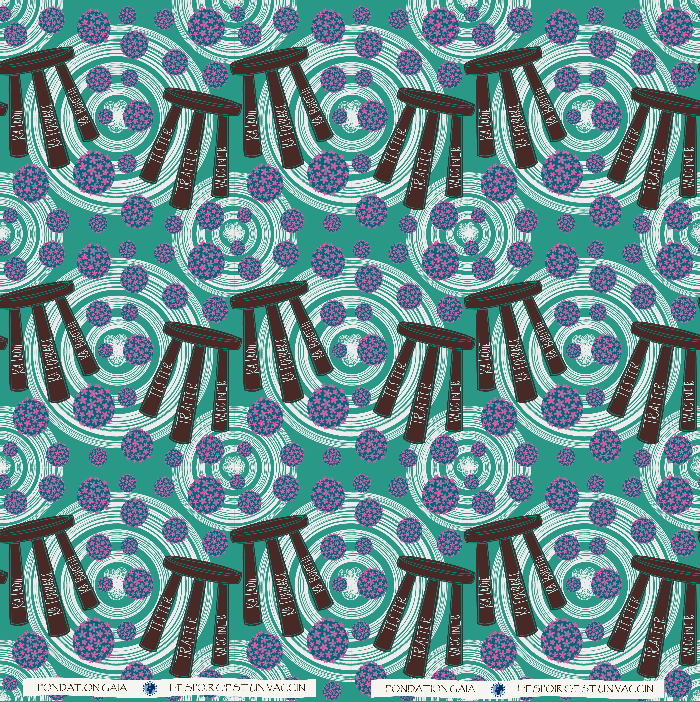 GAIA’s previous research on HPV and cervical cancer in Mali shows that a mother’s willingness to vaccinate her daughter is linked to her knowledge of the vaccine and the diseases it prevents. Without consistent messaging, knowledge about HPV and cervical cancer decreases. This is exacerbated by the fact that vaccine delivery to Mali has been delayed so long. Delay was due to a number of factors, including cost, fear, and inadequate information.
GAIA’s previous research on HPV and cervical cancer in Mali shows that a mother’s willingness to vaccinate her daughter is linked to her knowledge of the vaccine and the diseases it prevents. Without consistent messaging, knowledge about HPV and cervical cancer decreases. This is exacerbated by the fact that vaccine delivery to Mali has been delayed so long. Delay was due to a number of factors, including cost, fear, and inadequate information.
As only 22% of Malian women are literate, communicating information through forms other than writing is extremely important. GAIA’s newest HPV and cervical cancer storytelling cloth, designed by Adeline LeDoux, shows the importance of a three-pronged approach: “tester, traiter, vacciner” in French, or “test, treat, vaccinate.”
The storytelling cloth used in the pilot program, designed by Eliza Squibb, features geometric flowering patterns that serve as reminders for girls to get the second dose of the vaccine six months after the first and for women to receive a follow-up screening 12 months after a normal screen. The logo for the program depicts a woman and girl’s profile encircled with the Malian proverb, “It is better to prevent than to cure” and the French slogan, “Screened Mothers and Vaccinated Daughters.”
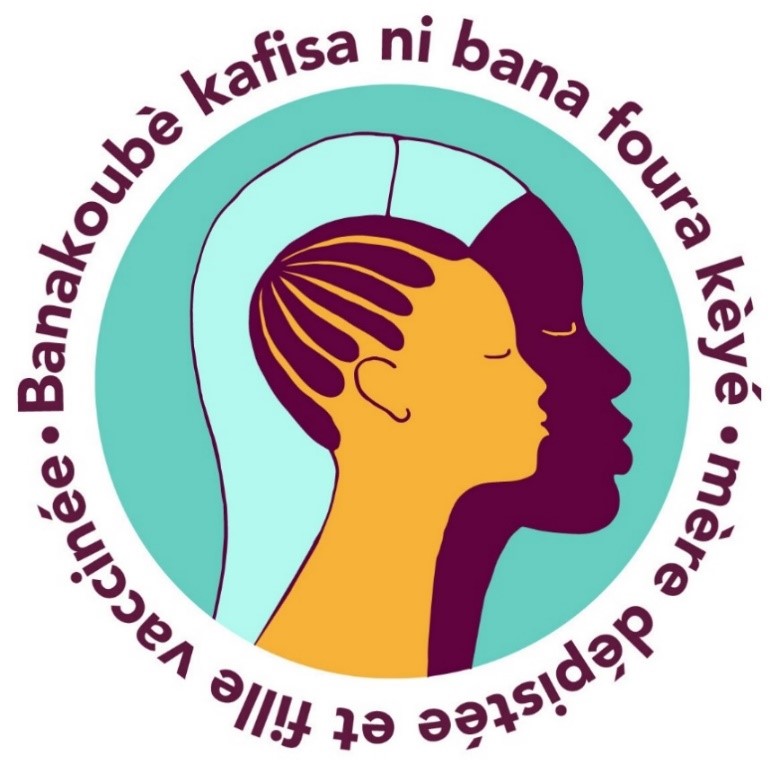 GAIA will partner with community women’s associations to provide their groups with training on HPV, cervical cancer, screening, and the vaccine. Local women’s associations are experts at community outreach. They know their communities and how to best spread information, so GAIA engages these associations as community health care workers to do educational outreach using the storytelling cloth as a teaching tool. Each association will receive training, stipends for participating in the project, and enough of the storytelling cloth to market their outreach program in their community. In past outreach campaigns, women used storytelling cloth to create outfits that they wear during the outreach to add consistency and interest to the message, presenting the information creatively in a way that resonates with Malian women.
GAIA will partner with community women’s associations to provide their groups with training on HPV, cervical cancer, screening, and the vaccine. Local women’s associations are experts at community outreach. They know their communities and how to best spread information, so GAIA engages these associations as community health care workers to do educational outreach using the storytelling cloth as a teaching tool. Each association will receive training, stipends for participating in the project, and enough of the storytelling cloth to market their outreach program in their community. In past outreach campaigns, women used storytelling cloth to create outfits that they wear during the outreach to add consistency and interest to the message, presenting the information creatively in a way that resonates with Malian women.
Part of the project includes offering cervical cancer screenings at local clinics. GAIA has partnered with government-run community clinics for nearly two decades. The clinics are run, staffed, and funded by the Malian government, however GAIA Vaccine Foundation works in partnership with the clinics to provide additional services which would not otherwise be available.
Budget
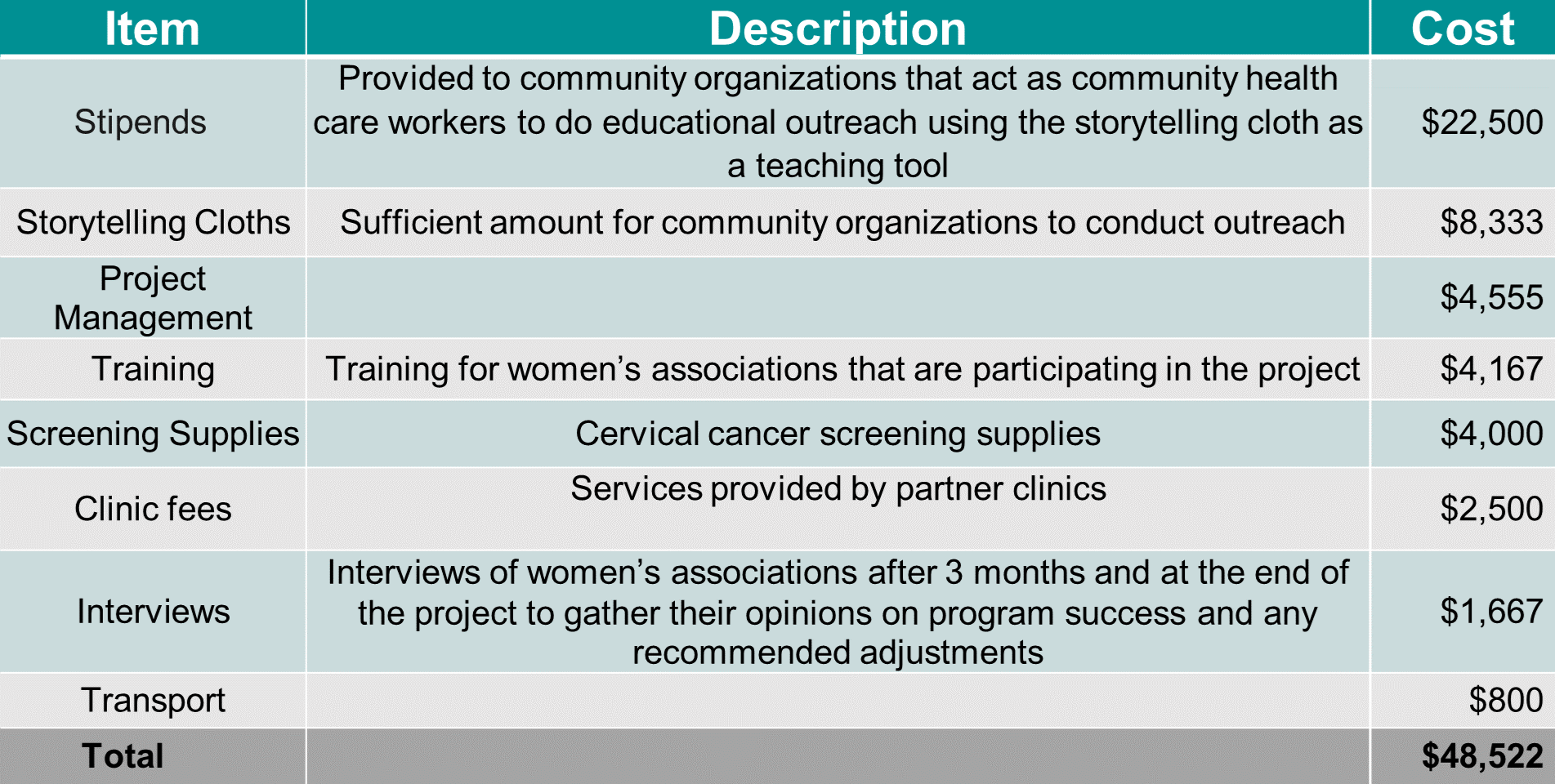
Why We Love This Project/Organization
We love this project because of the innovative way it is using a teaching cloth to provide vaccine education. This program also focuses on the fact that cervical cancer is a major killer of women in Mali, and this is a logical step in reducing the number of cases. As a previous grantee, GAIA has a proven record of creative, innovative, and successful work.
Impact Story
Nanssira requested that her photo not be shared.
Nanssira was born and raised in the rural area of Siby. Siby is located southwest of Bamako, Mali’s capital city. She is 45 years old and has never attended school. Nanssira is in a polygamous marriage and had seven children when she was very young. She has worked hard her whole life to provide for them.
In early 2023, during a cervical cancer screening campaign, Nanssira came to a consultation office with a smile that hid her pain, fear, and hesitation, but the welcome and care from the attending midwife quickly restored her confidence. Testing there indicated that Nanssira needed to be referred for additional screening, after which she was diagnosed with cervical squamous intraepithelial neoplasia 3 (CIN3) (also known as high-grade or severe dysplasia). CIN3 occurs when a cervical biopsy finds severely abnormal cells on the cervix’s surface, usually caused by HPV. Although it is not cancer, it can become cancer and spread if left untreated. Thanks to the early detection, Nanssira received treatment before the cells could turn into cancer and spread. The success of the treatment and Nanssira’s full recovery was confirmed at her last follow-up consultation where she also asked the midwife if she could schedule an appointment for her sister.
After her experience, Nanssira became an assistant with GAIA’s screening campaign and now works tirelessly to help ensure women are aware of the need to be screened for cervical cancer and that they know about the upcoming HPV vaccine.
| I would like to know more about the vaccine to inform those around me. You (GAIA) saved my life through your care. As for me, I will help others not to live the nightmare of doubt of having this type of atrocious disease that is cancer.”
– Nanssira |
Learn More
Source Materials
https://www.gaiavaccinefoundation.com/
https://pubmed.ncbi.nlm.nih.gov/25987056/
https://www.ncbi.nlm.nih.gov/pmc/articles/PMC9800037/
https://www.cia.gov/the-world-factbook/countries/mali/#people-and-society
https://togetherwomenrise.org/programfactsheets/gaia-vaccine-foundation/
https://www.frontiersin.org/journals/public-health/articles/10.3389/fpubh.2022.1
https://www.mdpi.com/2076-393X/12/9/1019
https://www.who.int/news-room/fact-sheets/detail/cervical-cancer
https://www.cancer.org/cancer/types/cervical-cancer/about/key-statistics.html
https://www.who.int/campaigns/cervical-cancer-elimination-day-of-action
https://pmc.ncbi.nlm.nih.gov/articles/PMC9666282/
https://news.un.org/en/story/2022/01/1109152
https://www.elizasquibb.com/hpv-vaccine
Glossary
HPV: human papillomavirus
MTCTP: Mother-to-Child HIV Transmission Prevention
The Global South: The Global South includes the countries that experience higher levels of poverty, income inequality, lower life expectancy, and harsh living conditions compared to the wealthier nations in the “Global North” – located mostly in North America and Europe. The Global South primarily includes many of the countries in Africa, Latin America, the Caribbean, Asia and the Pacific, and the Middle East.